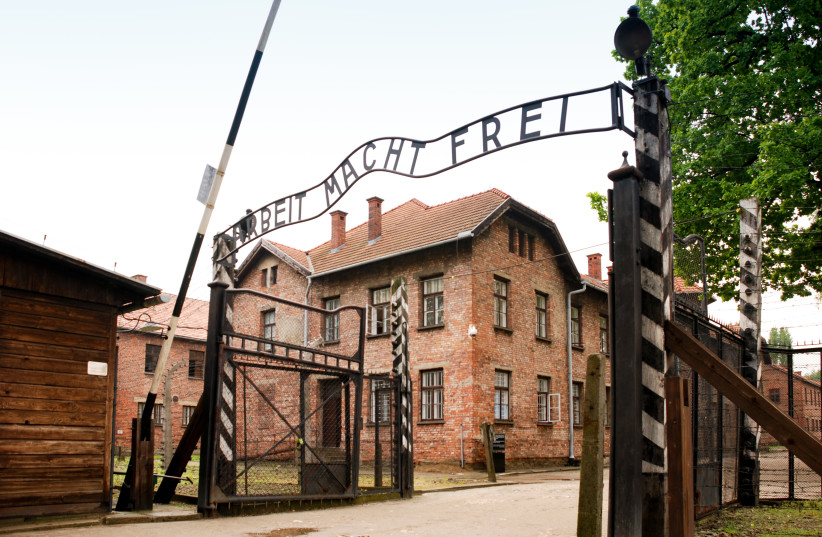I Am Here, a life-affirming documentary that is a portrait of an extraordinarily charismatic and brave 100-year-old Holocaust survivor, Ella Blumenthal, was released in US theaters on March 11.
Blumenthal is a doting and active mother and grandmother, who loves to walk along the beach in Cape Town, South Africa, where she lives. But, she has a Yiddish accent that she embraces rather than trying to hide and there is a scar on her arm where her inmate number tattoo from Auschwitz used to be.
Although when she was raising her children, she did not speak to them about what she experienced, at a certain point she decided to share her story and she speaks about her life, the tragic and triumphant moments. The movie was filmed a couple of years ago and shows her celebrating her 98th birthday.
Born in Warsaw in 1921, she was the youngest in a family of seven children and grew up in a loving and religiously observant environment. But when the Nazis invaded Poland in 1939, her life suddenly changed. She and her family were forced into the Warsaw Ghetto and eventually more than 20 members of her family were murdered in concentration camps. She managed to survive in hiding until the Warsaw Ghetto uprising and afterwards, she and her niece, Roma, were sent to the concentration camps at Majdanek, Auschwitz and Bergen-Belsen.
While Blumenthal seems to have been strong and to have had an incredibly well-tuned sense of how to survive, her explanation of how she came through the Holocaust is simple: “If you think that good luck or good fortune has saved me, it’s wrong. It’s somebody up there is looking after me and giving me strength to fight and pushing me up. So don’t think it was just luck.”

She tells her story in interviews, during family get-togethers and in animated sequences that detail her concentration-camp years. At one point while she was in the camps, she came across a page from the Haggadah, the Passover prayer book. This page sustained her, she says, and she kept it with her throughout the entire war.
In an animated sequence that is one of the highlights of the film, she imagines herself dancing in the air with Hebrew words from the prayers floating around her, such as kodesh (holy), ahavah (love) and brocha (blessing). Using these words for inspiration sustained her, as did her religious faith, which guided her through difficult and harrowing situations.
Once, when she was given the chance to be in charge of a group of inmates, a job which would have given her incredible perks such as her own room, better food and even a sheet, she turned it down because she would not point out the sick women to the guards so that they could be gassed.
Her love for life and people also kept her going. After the war, she and Roma traveled to Paris, where she describes the deep joy they felt by buying suits from a tailor there. Eventually, Blumenthal went to Palestine, where she met a young South African man, whom she married after knowing him less than two weeks. She went to his home country and built a joyful life there.
Although the entire movie is touching, one of the most moving sections is when she speaks with her children about why she did not talk to them about what she went through when they were children. She wanted to protect them from knowing about the horrors she endured, but they say that she always sensed something, especially when she would scream in her sleep. Today, she can tell them that what most tormented her were nightmares in which Nazis came and took her children away.
It is wonderful that director Jordy Sank was able to celebrate the joy his protagonist experiences every day of her life, which helps balance the sorrow of her memories. The movie has won awards all over the world, including Audience Awards at several festivals. It will make you want to run off to Cape Town and give Blumenthal a hug, if you find her on one of her daily walks. And it may make you more attentive to the other survivors in our midst and encourage them to tell their stories, too.
